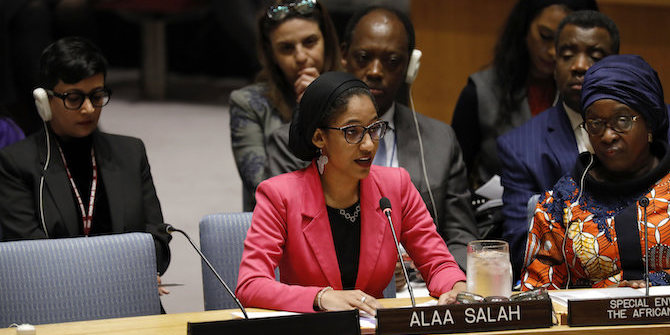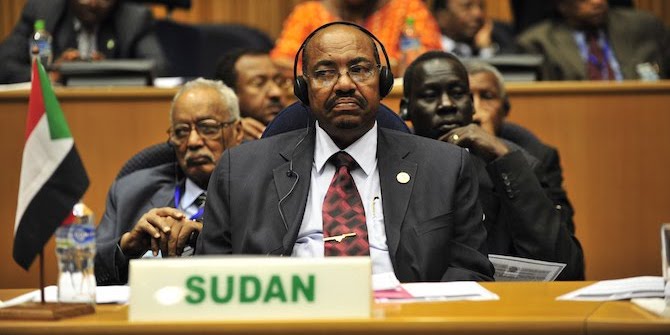by Hala Abushama, Souad Mohamed & Aida Abbashar

On 26 November 2022, a conference was held to disseminate the findings of phase I of the project ‘Understanding the barriers and enablers to women’s leadership in Sudan’. It took place in Al-Salam Hotel in Khartoum, Sudan and hosted by Haggar Group – a leading private sector company specialising in different sectors, with a particular interest in women leadership development. The conference brought together various stakeholders – from the diplomatic sphere, academia, policy makers and influencers, the private sector, political and social activists – who spent the day discussing the results of the multiple rounds of questionnaires from the research project.
As Sudan is currently undergoing a period of political transition, women’s underrepresentation, and the lack of impactful presence in policy- and decision-making spheres continues to be a pressing challenge to inclusive development in Sudan. Our project’s phase I results aimed to identify key barriers and enablers to women’s leadership across sectors, while phase II aimed to provide evidence-based policy solutions to institutions in academia, private sector, policy making, and in activism.
Muna Merghani, Chief Human Resources & Sustainability Officer at Haggar Group, welcomed the audience and highlighted the importance of the opportunity for women’s leadership development in Sudan.

His Excellency Giles Lever, British Ambassador to Sudan stressed the need to focus on women’s issues in Sudan to support the achievement of the SDG goals 5. In doing so, achieving gender equality and empowering all women . During the 2019 revolution Sudanese women have proven their strength and ability to contribute to change. The role that women played historically in Sudan, and most recently since 2019, mandates the incorporation of gender sensitive policies that ensure women’s rise to senior leadership and decision-making positions across different domains. The revolution was a critical turning point in the lives of many Sudanese women, and ever since, women have become more vocal about obtaining the rights they deserve.
Dr Souad Mohamed, the Principal Investigator of the project emphasised in her opening keynote the importance of understanding how women can be empowered in the workplace and urged all stakeholders to take the conversation forward and work collectively to promote women related policies across the different sectors. Her key message was that although international reports indicate that the MENA region will need about 150 years to close the gender gap, we need to challenge this notion and push forward to narrow the gender gap and achieve gender parity in our lifetime. Although there is urgent need to assess women’s leadership at the grassroots level, this cannot be done in the absence of enough women in senior leadership and decision-making positions across public and private sector entities. She added that only then can we start implementing legislations and policies that will empower women at all levels.
Aida Abbashar Research Assistant at LSE and Hala M.E Abushama, Research Assistant and Coordinator at the University of Khartoum, presented the preliminary results of the project such as policy implications and responses to the questionnaire. The results showed that women in Sudan adopt transformative leadership styles across the different segments of the study: academics, private sector, policymaking, women activists and individual leaders. The project aims to form a steppingstone by providing evidence-based policy recommendations to enable women’s meaningful participation in leadership positions.
A critical element of the conference was the engagement of the various stakeholders with the topic discussed and the outcomes. The audience showed great interest and appreciation of how the results promote evidence-based solutions to their different organisations. The world café was an interactive activity in which the key stakeholders answered some of the questions posed to them and had the opportunity to network. The results of their answers demonstrated that women in Sudan, across different professional sectors, have similar barriers but also similar enablers to their leadership development.

This blog post is part of the research project ‘Understanding Barriers and Enablers to Women’s Leadership in Sudan’ conducted in collaboration between the LSE Middle East Centre, IEL International in the UK, the University of Khartoum, Sudan and Funded by Ethar, UK.
[To read more on this and everything Middle East, the LSE Middle East Centre Library is now open for browsing and borrowing for LSE students and staff. For more information, please visit the MEC Library page.]





